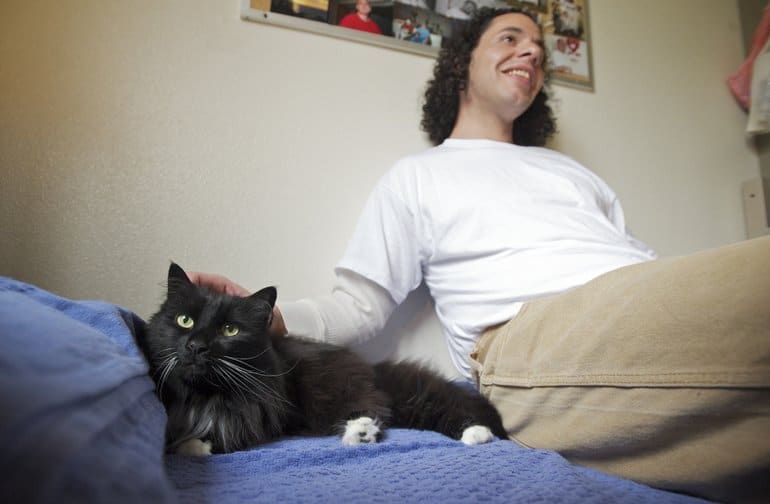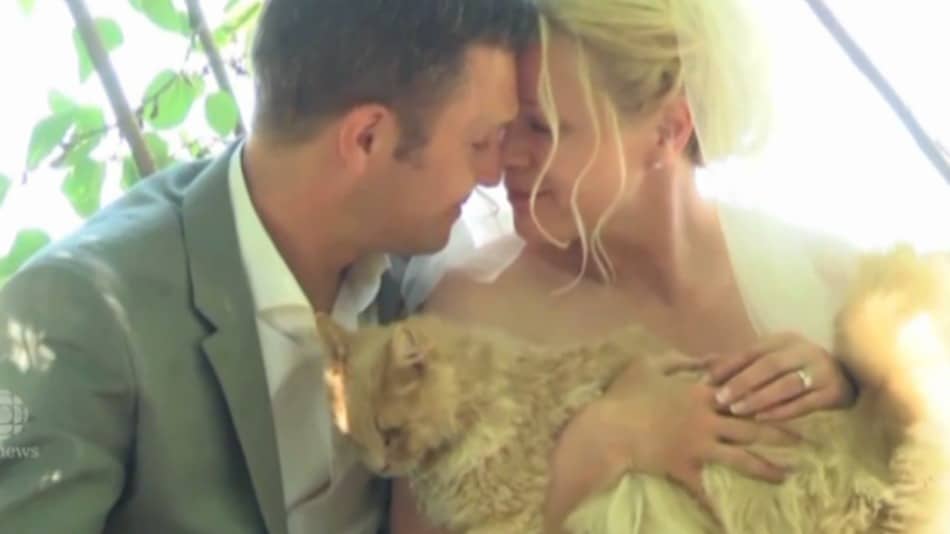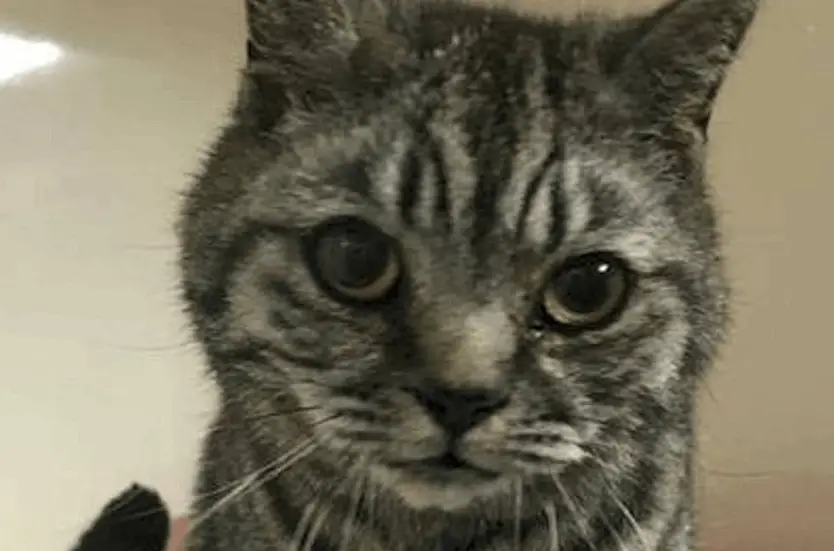Cat owners sometimes get a bad rap – especially if you’re above a certain age or own more than one cat. Though the term “crazy cat lady” is kicked around fairly often, owning a cat may make you anything but crazy. In fact, owning a cat could have a beneficial impact on your mental health.

According to 2018 statistics, roughly 25% of American households own a cat – that’s over 31 million households.[1] Cats have a reputation for being ornery or standoffish, but there must be some benefit to cat ownership if roughly one-quarter of Americans do it. While individual experiences may vary, scientists have found that owning a cat can boost your physical and mental health.
Here are 5 ways owning a cat could contribute to improved mental health:
1. Improved overall well-being
Research suggests interacting with animals can provide both physical and mental health benefits. In a 2012 study, researchers hypothesized that human-animal interaction (HAI) impacts the oxytocin system which plays a role in many psychological and psychophysiological processes in the body. For example, human-animal interaction may support improved mood, reduced anxiety, improved immune function, and relief from stress.[2] Owning any kind of pet has the potential to provide these benefits, but cats have been linked with a few specific benefits.
In an Australian research study, cat owners were found to have better psychological health and non-cat owners. Study participants self-reported stronger feelings of happiness and confidence as well as an improved ability to sleep, focus, and face problems in their lives.[3] Even something as simple as watching cat videos online can improve your mood and leave you with more positive feelings.[4]
2. Companionship and social support
Caring for a pet is a big responsibility, but it can also be incredibly rewarding. Though cats can be somewhat independent animals at times, they can also form strong bonds with their owners and can become a source of companionship. Cats make great pets because they are fairly low maintenance, but they can be good company for someone who is struggling with isolation or loneliness.

Owning a cat could also help you deal more effectively with feelings of grief or pain. Everyone deals with grief and loss differently. Some prefer the company of others and some prefer to be alone. Whichever end of the spectrum you fall on, having a cat around could help. Cats can provide support through companionship simply by being present or they might be more interactive. It all depends on the type of bond you have with your cat.
3. Reduced stress levels
We all experience stress from time to time, but research suggests cat owners may have lower levels of stress and anxiety than non-cat owners. Scientific evidence shows that a cat’s purr has the ability to calm the human nervous system and may even speed healing and reduce pain and swelling.[5] Even if your cat’s purr doesn’t magically solve all your problems, there’s something comforting about holding a purring cat on your lap.
4. Improved interpersonal relationships
The relationship you have with your pet is one of unconditional love. Even if your cat isn’t always one for physical affection, he’s always there as a source of company and companionship. The relationship you have with your cat is unique, but it may have benefits for your human relationships as well. For example, research shows that cat owners tend to be more socially sensitive and more trusting of other people than non-pet owners. Owning and caring for a cat may help you feel more positive about people.[6]
5. Relief from anxiety
Though you may hear about therapy dogs more often, cats make wonderful therapy animals as well. While some cats develop a reputation for being ornery or headstrong, many breeds are very social, affectionate, and loving toward their human caretakers. The simple act of stroking your cat can have a calming effect on your mind and your body. Plus, caring for a pet may give you a sense of purpose that could help you cope with negative emotions and anxiety.

Cats are wonderful pets, but their personalities differ just like a human’s. If you want to form a stronger bond with your cat, you may need to work with him a little bit. Make an effort to spend some one-on-one playtime with your cat each day and incorporate food rewards to help your cat build a positive association with you. Never force your cat to cuddle or interact with you – cats are independent creatures and are more likely to seek interaction when it can be done on their own terms.
Interesting Statistics About Cat Owners
Owning a cat may help fulfill your need for companionship, but what does being a cat owner say about you? Different pets have been paired with certain personality traits and some studies suggest people who own cats are more intelligent than dog owners or they may be less likely to suffer a heart attack.
Here are some interesting facts and statistics about cat owners:
- The results of a 2010 survey of British pet owners conducted by the University of Bristol found that cat owners were more likely to hold a college degree than dog owners.[7]
- Owning a pet can reduce stress and improve heart health – so much that cat owners have been found to be 30% less likely to die of a heart attack or stroke than non-cat owners.[8]
- The CDC estimates that about 50% of pet owners allow their pets to sleep with them and some experts suggest sleeping with a cat can improve your quality of sleep.[9]
- According to a 2002 study conducted by the National Institutes of Health (NIH), children raised in a home with cats may be less likely to develop allergies.[10]
- Cat owners are 11% more likely to be curious, creative, and artistic-minded than dog owners. They may also be a little more neurotic than dog people.[11]
Mental health issues are incredibly common in the United States, affecting roughly 1 in 5 U.S. adults.[12] Common as they may be, mental health issues can range in severity and they can affect different people in different ways. If you’re struggling with an anxiety disorder, depression, or other mental health issues don’t be afraid to seek help. Talk to your doctor or visit an online psychiatrist to get the help you need.
The Catington Post is reader-supported. That means, if you make a purchase through links on our site, we may earn an affiliate commission. All images and names which are not the property of The Catington Post are the property of their respective owners.[1] https://www.avma.org/resources-tools/reports-statistics/us-pet-ownership-statistics
[2] https://www.ncbi.nlm.nih.gov/pmc/articles/PMC3408111/
[3] https://www.tandfonline.com/doi/abs/10.2752/089279393787002385
[4]https://www.sciencedirect.com/science/article/abs/pii/S0747563215004343
[5] https://pets.webmd.com/cats/why-do-cats-purr
[6] https://psycnet.apa.org/record/1983-32714-001
[7]https://www.telegraph.co.uk/news/science/science-news/7165164/Cat-owners-more-educated-than-dog-owners.html
[8] https://www.ncbi.nlm.nih.gov/pmc/articles/PMC3317329/
[9]https://www.healthline.com/health-news/should-you-let-your-cat-sleep-in-bed-with-you#How-cats-can-affect-your-sleep
[10]https://web.archive.org/web/20021004100013/https://www.nih.gov/news/pr/aug2002/niaid-27.htm
[11] https://pets.webmd.com/ss/slideshow-truth-about-cat-people-and-dog-people
[12] https://www.nimh.nih.gov/health/statistics/mental-illness.shtml




